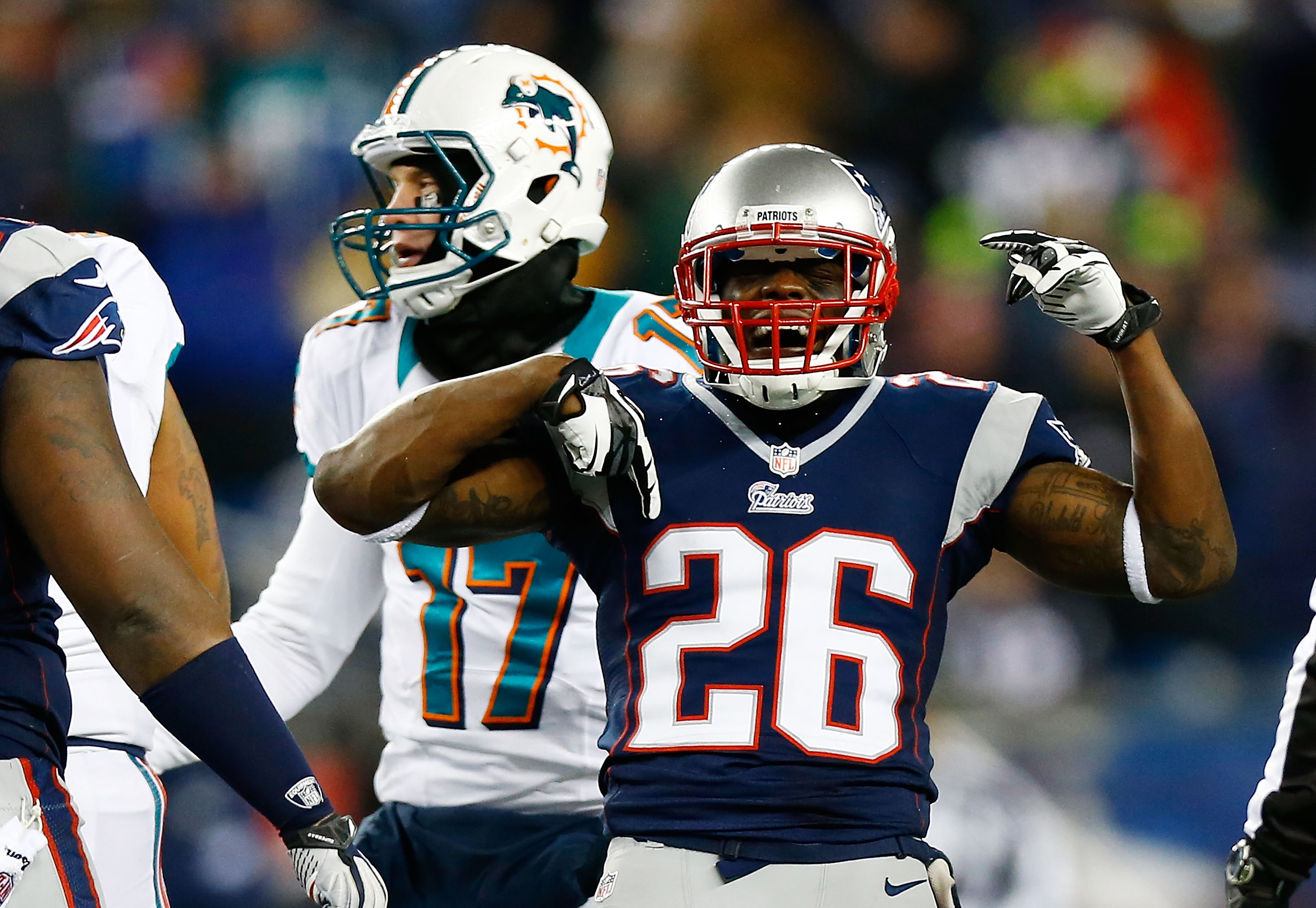
Susan Daub (Facebook)
Update (March 1, 2017): Susan Daub and former NFL defensive back Will Allen have been sentenced to six years in federal prison after pleading guilty to money laundering and running a $35 million Ponzi scheme, the U.S. Attorney for the District of Massachusetts says in a press release.
Daub, 56, of Coral Springs, Florida, partnered with Allen to defraud professional athletes and others through fraudulent loans totaling $35 million, prosecutors said. She was also sentenced to three years of supervised release and ordered to pay restitution of $16.8 million.
“The defendants’ elaborate Ponzi scheme robbed many of the investors of a stable financial future,” said Acting United States Attorney for Massachusetts, William D. Weinreb, in a statement. “The significant sentences the Court imposed today should remind investment professionals to handle their clients’ money with the transparency and integrity that the law requires.”
Harold Shaw, the Special Agent in Charge of the FBI’s Boston division, said in a statement, “Mr. Allen and Ms. Daub lied, cheated and swindled investors out of millions of dollars for their own personal enrichment. This behavior destroys the financial security of hard-working individuals in our community and the FBI will do everything in its power to bring to justice individuals who take advantage of unwitting victims.”
IRS Criminal Investigation Special Agent-in-Charge Joel Garland said, “The sentences imposed by the court today send a strong message – those who defraud investors to unjustly enrich themselves will pay a hefty price. As a former professional football player, Mr. Allen’s conduct is especially egregious. He used his status as an NFL athlete to legitimize his dealings with investors. We are proud to bring our financial expertise to joint investigations of this magnitude, and help prevent future victims of such schemes.”
Daub and Allen pleaded guilty in November 2016 to two counts of wire fraud, one count of conspiracy and one count of money laundering. They were arrested in June 2015 after being sued by the Securities and Exchange Commission in April of that same year.
You can read the original report from May 2015 below:
—
A financial planning company run by former NFL player Will Allen and his business partner, Susan C. Daub, has been accused by the Securities and Exchange Commission and federal prosecutors of running a Ponzi Scheme involving loans to professional athletes.
The scheme by Allen, Daub and their company, Capital Financial Planners, raised $31 million, according to the SEC, which has frozen the company’s assets in a civil court action.
Daub and Allen were arrested in June. They were officially charged on July 10 with 12 counts of wire fraud, conspiracy to commit wire fraud, six counts of identity theft and several counts of money laundering (four for Allen and one for Daub), the U.S. Attorney for Massachusetts says.
Here’s what you need to know:
1. They Blew the Money on Clothes, Jewelry, Gambling & More

Susan Daub (Facebook)
According to the SEC complaint, Allen and Daub spent the money they made from the scheme on personal expenses. The SEC said credit card charges totaling $1.4 million were made at “casinos, pawn shops, jewelers, grocery stores, cigar shops and clothing retailers.”
The SEC said there were additional purchases made at “storage facilities, airlines, hotels, restaurants, night clubs and limousine companies” that were not included in the $1.4 million.
2. The Scheme Used Athletes Who Need Short-Term Loans in the Off-Season

In this handout image provided by the NFL, Will Allen of the Miami Dolphins poses for his NFL headshot circa 2011. (Getty)
The SEC alleges that Allen and Daub made short-term loans to athletes in need of money during the off-season, when they are not getting paid through their normal contracts with professional teams.
In a press release, the SEC says:
Allen and Daub told investors that they could profit by funding the loans and receiving interest of up to 18 percent paid by the athletes. The complaint alleges that from July 2012 through February 2015, the defendants paid approximately $20 million to investors while receiving a little more than $13 million in loan repayments from athletes. To fill the nearly $7 million gap, Allen and Daub used money from some investors to pay other investors, the hallmark of a Ponzi scheme.
3. The Scheme Fell Apart After an Unnamed NHL Player Filed for Bankruptcy

(Getty)
According to the SEC complaint, 24 investors put in more than $4 million for a purported $5.65 million loan to a NHL player. The SEC said “Daub provided some of the prospective investors with a purported copy of a $5.65 million promissory note signed by the player and a loan agreement signed by the player and by Allen. Daub told some of the prospective investors that the player would make monthly payments in accordance with the schedule of the loan documents. The purported $5.65 million loan to the NHL player was a sham.”
The SEC alleges the player didn’t sign the promissory note or the loan agreement.
According to the SEC:
On October 7, 2014, the NHL player filed for bankruptcy and listed Capital Financial among his creditors. On February 9, 2015, Capital Financial filed a proof of claim in the amount of $3,429,750 and attached a $3.4 million promissory note signed by the player and a loan agreement. The documents that Capital Financial submitted to the bankruptcy court concerning the $3.4 million loan are dated April 14, 2014 – exactly the same day as the phony documents concerning the supposed $5.65 million loan to the same player that Allen and Daub used to persuade investors to part with more than $4 million.
The SEC said in the complaint that Daub sent an email to investors involved in the loan saying it was “performing as expected,” but did not mention that the actual loan was for $3.4 million, not $5.65 million. She said all the payments had been made in full and on time, when in fact the player had made no payments.
Allen was paying the investors through monthly wire payments “in amounts consistent with the player’s supposed repayment obligations. Since the player has paid nothing to Capital Financial, the money for these repayments has necessarily come from other sources. Bank records indicate that such sources include loan repayments by other athletes and money from other investors,” according to the SEC complaint.
Read the full SEC complaint here:
4. Daub Lives in Florida & Was Formerly a Vice President For a Bank

Susan Daub (LinkedIn)
Daub, 54, lives in Coral Springs, Florida, according to the SEC complaint. She previously lived in Acton, Massachusetts, where started the company with Allen, who had retired from football after playing for the New England Patriots.
She is listed as a manger of Capital Financial Partners and was registered with the SEC as a “representative of various broker-dealers and investment advisers,” according to the complaint. She was also registered as a life insurance agent and private banker.
According to her LinkedIn.com profile, Daub was vice president of Regions Bank from 2007 to 2010, and then was president of SCD Global Group from 2010 to 2012, before founding the company with Allen in 2012.
5. Allen Was a First Round Draft Pick in 2001

Will Allen celebrates while playing for the New England Patriots (Getty)
Allen, 38, retired in 2012 after 11 seasons. He was drafted in the first round of the NFL draft in 2001 by the New York Giants after attending Syracuse University.
He played cornerback for the Giants from 2001 to 2005, and then spent 2006 to 2011 with the Miami Dolphins. He was on the New England Patriots roster for one season, but spent that year on injured reserve before retiring. He recorded 525 tackles, 5 sacks and 15 interceptions during his career.
Allen, born in 1978, is not to be confused with former NFL safety Will Allen, born in 1982, who attended Ohio State University and played for the Tampa Bay Buccaneers, Dallas Cowboys and Pittsburgh Steelers before retiring in 2015.

Comments
Susan Daub: 5 Fast Facts You Need to Know